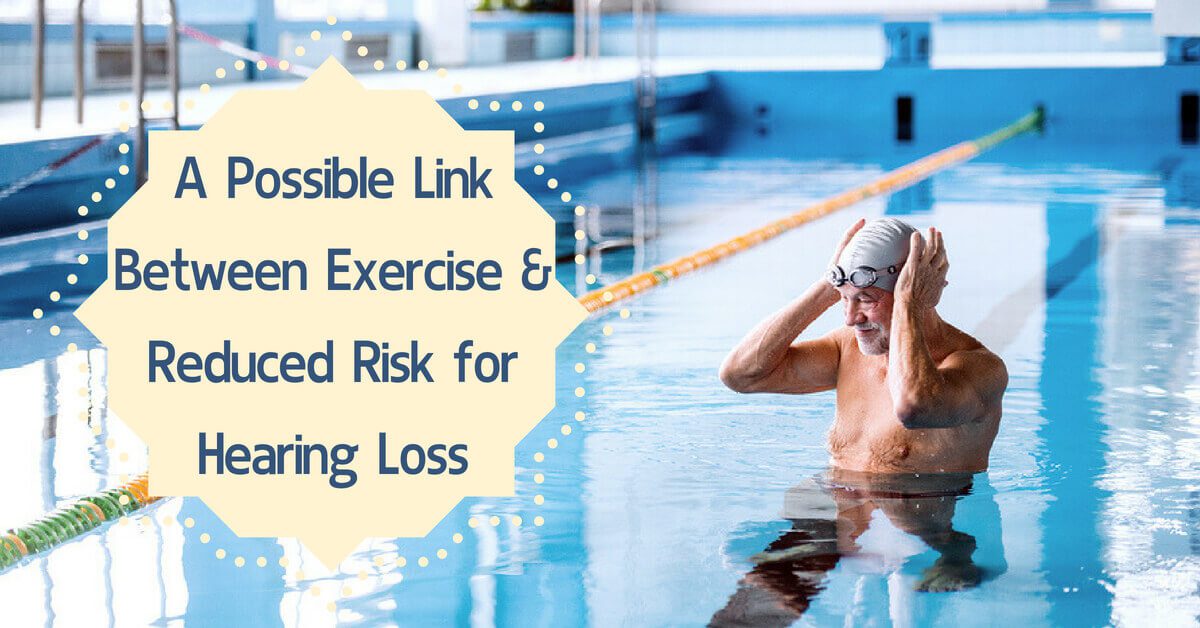All About Bluetooth Hearing Aids
Do you remember the hearing aids your parents or grandparents used to

By: admin | June 21, 2018
A statistic has come out recently that people with heart disease are 54 percent more likely to develop hearing loss. It might seem odd to you that hearing loss can be influenced by exercise, but a new study by strengthens this link even further. The study divided mice into two groups and gave one group an exercise wheel and the other group nothing. The exercise mice really took advantage, running 7.6 miles per day at the age of 6 months. The mice that exercised displayed 5 percent less hearing loss over the course of their life. The mice that did not exercise experienced a 20 percent hearing loss. They also found that age-related inflammation was less prevalent in the active mice, which could have been a factor in reducing hearing loss among that group. The dearth in exercise from the sedentary group however caused the structures inside the cochlea to corrupt, damaging those vital hair cells which detect sound and convert it to an electrical signal for the brain to process. Blood flow to the cochlea (which is important for proper functioning of the hearing organs) was also compromised as the strial capillaries weren’t as productive. From this study, we can formulate a number of reasons why exercise can help with hearing loss. Here are a few:
When we are active, oxygen-rich blood flows around our body, including our ears. This leads to better neural integrity as the connection between the ear and the brain is strengthened. The brain needs that oxygen from blood as it is the organ which takes the sound you hear and transmits it into signals which make sense to you. It works particularly hard when trying to separate speech from background noise. That’s why it’s more difficult to hear your friends in loud public places. So, it needs a healthy brain that is well versed in moving information from one area to another.
We also see that the healthier you are, you are less likely to succumb to the side effects of drugs which might cause hearing impairment. Your insulin resistance and inflammation are reduced, and brain cells are more likely to survive. You also respond better when exposed to noise and are able to better process the complex calculations needed to decipher speech in noisy environments.
Several other researchers have also discovered a link between fitness and hearing loss. A recent study of 60,000 women from 1989-2009 saw that women who had a higher body mass index were 70% more likely to have hearing loss than those with a low body mass index. They also measured waist widths and saw the same correlation. In short, the wider your waists are, the higher the risk of hearing loss you face. The benefits of a low BMI on hearing loss are lengthened by 17% when the women exercised regularly. The study concluded by recommending walking two or more hours a week as an effective deterrent from hearing loss. The same conclusion was reached by the American Speech-Language-Hearing Association (ASHA) who found that a person in their 50s who is in good shape can hear as well as a person in their 30s.Finally, a study by John Hopkins University found seniors who were active around 3 hours a week had much lower rates of hearing loss than those who didn’t exercise at all.
The good news is that you don’t have to run a marathon or do a hundred barbell reps to get the benefits. According to the American Heart Association, “just 30 minutes a day, five days a week” of moderate exercise is all you need to cut heart disease and reduce the risk of hearing loss. “The simplest positive change you can make to effectively improve your heart health is to start walking.” It says. If you are hitting the gym however, don’t forget to protect your hearing. Wearing headphones with the music too loud or standing too close to the speaker during a dance class can expose you to noise above the threshold of 85dB. Noise-induced hearing loss is the most preventable type there is. Don’t forget to protect yourself. It doesn’t matter whether you walk to work a few times a week, throw a few pitches with your son or regularly tend to your garden, the more active you are, the more likely you are to keep your hearing! If you are concerned about your hearing abilities, contact us at Orange County Physicians’ Hearing Services. We offer comprehensive hearing tests and hearing aid fittings.

Do you remember the hearing aids your parents or grandparents used to
By: admin | August 7, 2022

Do you ever find yourself at the end of a long day only to be confronted
By: admin | August 7, 2022

How Common is Hearing Loss Many people might be shocked to learn how
By: admin | June 22, 2022
